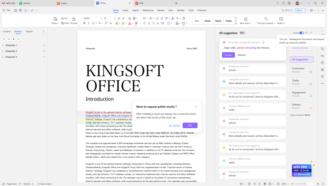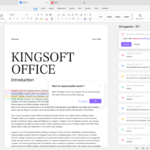How To Prepare For An English Exam
With most high-level universities prioritizing subjects like English and maths, the pressure for high school students to pass any English exam is high. Here, we’re going to take some of that pressure off by considering how to prepare for English exam success that might see you securing an A grade after all.
How To Prepare For An English Exam
Read, read, read
While the contents of every English exam vary (as we’ll discuss a little later,) one thing you can be sure of is the fact that set texts are going to feature. Make sure you’re reading those texts repeatedly to pick up on nuanced word choices, repetitive themes, and other literary devices. Highlighting and revising passages is especially essential for helping you to cite accurate quotations that give your exam arguments the gravity needed to tip your grade. Note, too, that even reading in a general sense can be a great help in how to prepare for an English exam. It provides a far better understanding of English usage, hidden metaphors, and the generalized techniques that your exam grade will most likely rest on.
Know what you’re being tested on
Suppose you attempt to research an entire English curriculum in the lead-up to an exam. In that case, you’re going to struggle to achieve the depth of understanding necessary to make your answers shine. Instead, specific knowledge of what you’re being tested on can help you narrow down what you’re learning and how you ultimately apply that knowledge on the day. Admittedly, specifics aren’t always available for your knowledge. However, your teacher should at least focus you on the key areas of learning that are most likely to crop up. Remember, too, that English exams are unique in that they don’t only take into account your arguments themselves. Your word choices, literary techniques, and grammar play a massive role in your overall grade, so ensure you spend plenty of time researching and perfecting these.
Complete practice papers
While all English exams are unique, many follow the same basic format in terms of the questions they ask and the writing tasks they expect you to complete. As such, asking your teachers or English tutor for practice papers or finding some online can significantly affect your chances of success. It will ensure that you’re at least a little familiar with whatever paper greets you on the day. Practice papers are also a huge help in encouraging you to play around with your word choices and practice your grammar usage in general. Have your teacher talk through these papers with you to have plenty of time to recognize and correct your mistakes before the big day.
Develop a research schedule
A research schedule is always a basic element in preparing for an exam but is especially fundamental for English exams that, often, rest more on your self-led efforts to enhance subject understanding than on black and white matters like science or maths. Students who tend to perform most highly in English exams utilize qualitative research (e.g. time and place in which novel was written, the life of the author, reception on publication, etc.). These are pretty extensive research topics and rely on your ability to manage and organize research. This still leaves plenty of time for more generalized preparations like reading the necessary tests. A well-thought research schedule leaves plenty of time for essay writing, literary analysis, and further research that will give your points much-needed gravity.
Make time for extra credits
The lead-up to an exam might not seem like the best time to take on extra workloads that you aren’t obliged to get stuck into. However, extra credit activities after school can also be of real use for exam prep. On a basic level, the extra recognition of attendance to book clubs, English tutoring, and even debating teams help with your language usage and can boost your grade. Taking this time out to talk about books or get extra last-minute guidance will leave you feeling fully prepared, ready to face your English exam.

















